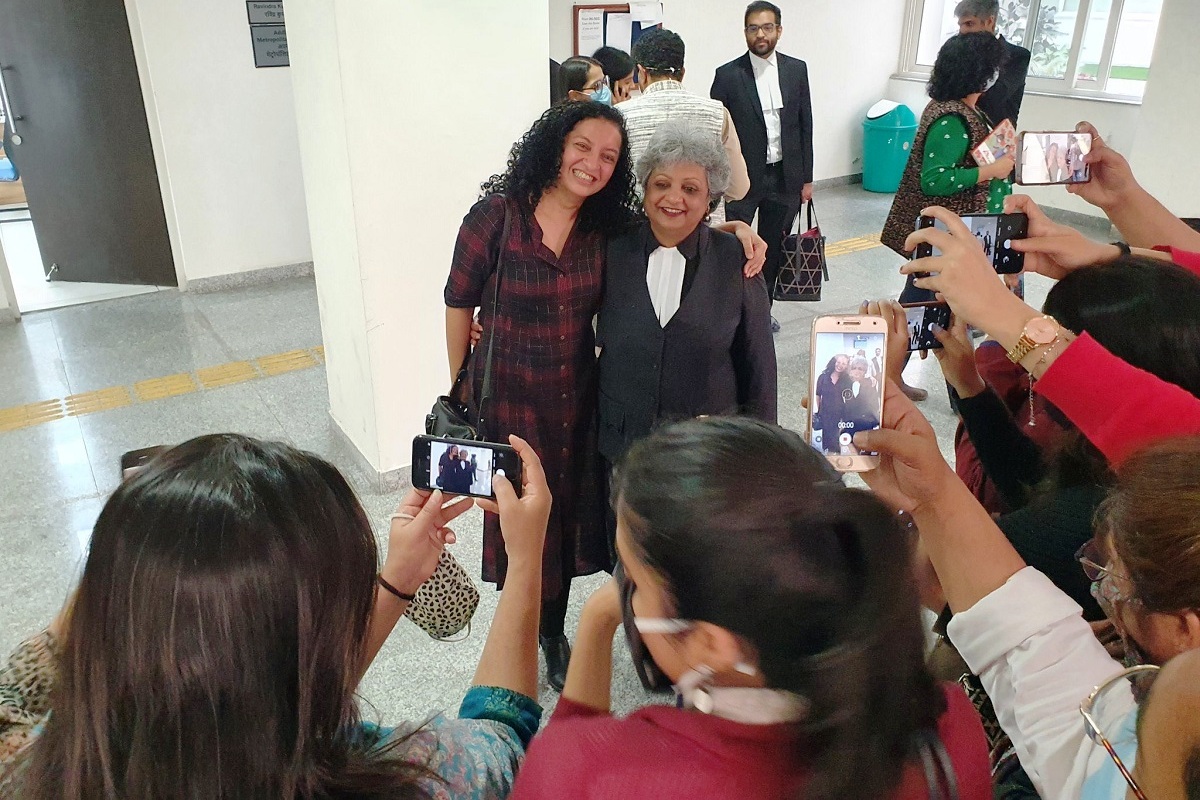In the sexual harassment and defamation cases pertaining to journalist Priya Ramani and former Union Minister MJ Akbar, a Delhi Court on Wednesday said that it is “shameful” that the incidents of crime and violence against women are happening in a country in which great epics the Mahabharata and Ramayana were written around the theme of respect and honour for women.
Ravindra Kumar Pandey, the Additional Chief Metropolitan Magistrate, made the remarks while acquitting journalist Priya Ramani in a criminal defamation case filed by MJ Akbar for accusing him of sexual misconduct in 2018 in the wake of #MeToo movement.
Advertisement
Ramani had made an allegation of sexual harassment against Akbar for sexually harassing her in 1994 following which he filed the criminal defamation case against her and resigned as the Union Minister.
In a 91-page order, the court stated, “It is shameful that the incidents of crime and violence against women are happening in the country where mega epics such as ‘Mahabharata’ and ‘Ramayana’ were written around the theme of respect for women.”
The Additional Chief Metropolitan Magistrate went on to state that in the Ramayana, the reference of great respect is found, when Prince Laxman was asked to describe Princesses Sita, he answered that he remembers only her feet as he had never looked beyond that.
“In the Aranaya Kand of Ramcharitmanas…it refers about noble ‘Jatayu’ when witnessed the crime of abduction of princes ‘Sita’, he came swiftly to protect princesses and consequently his wings were cut by Ravana,” the judgement stated.
Similarly, in Sabha Parv of Mahabharata, the reference is found about the appeal of queen Draupadi for justice to the Kuru Raj Sabha and she questioned the legality of her treatment of being dragged by Duhashana into the dice hall, the court further said.
“The Indian women are capable, pave the way for them to excel, they only require the freedom and equality. The ‘glass ceiling’ will not prevent the Indian women as a roadblock for their advancement in the society, if equal opportunity and social protection be given to them.”
The court said that a woman has a right to put her grievance at any platform of her choice and even after decades adding that right of reputation cannot be protected at the cost of the right to dignity. “Women cannot be punished for raising their voice against sexual abuse in the pretext of complaint of defamation.”
The Magistrate also took into consideration the systemic abuse at the workplace. He said that the time has come for society to understand the implications of sexual harassment.
To recall, Priya Ramani had in 2017 written an article for Vogue where she described her ordeal of being sexually harassed by a former boss during her job interview for his publication.
One year later, she revealed that the person alluded to as harasser in the article was MJ Akbar.
Akbar told the court that Ramani’s allegations were fictitious and cost him his stellar reputation. Priya Ramani, on the other hand, contested these claims, pleaded truth as her defence and said that she made allegations in good faith, public interest, and for the public good.
Talking to the media Ramani said that she feels “vindicated” on behalf of the women who spoke out against sexual harassment in the workplace.
“This battle has been about women, hasn’t been about me. I just happen to represent all the women who spoke up, the women who spoke up before me and the ones who spoke up after me,” Ramani told media following the verdict.
(With agency inputs)











